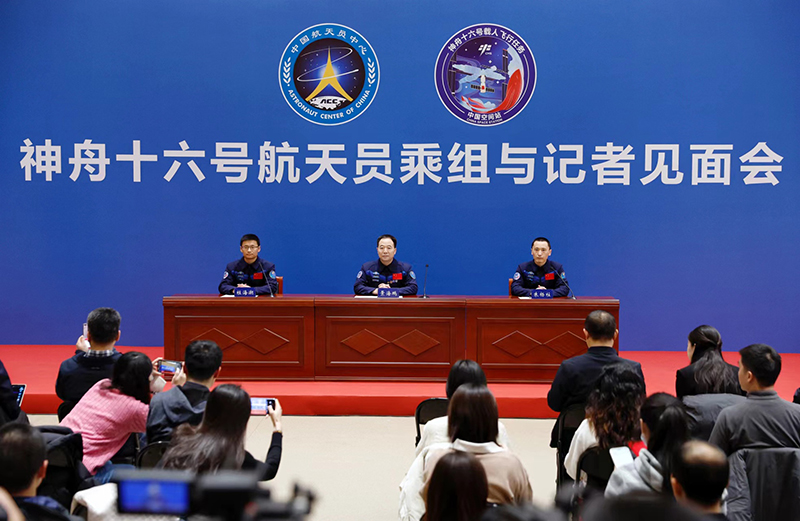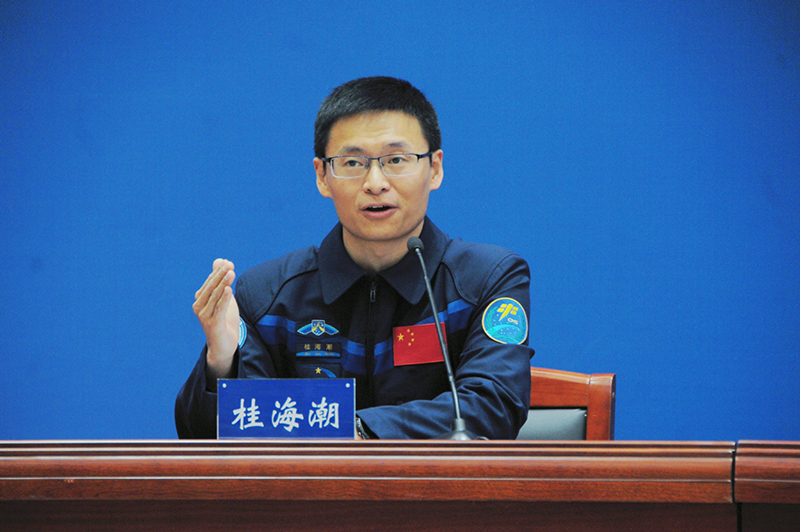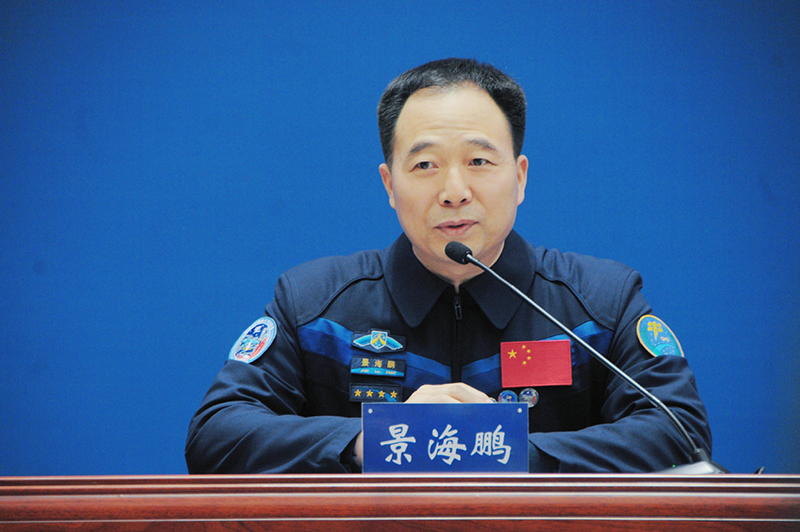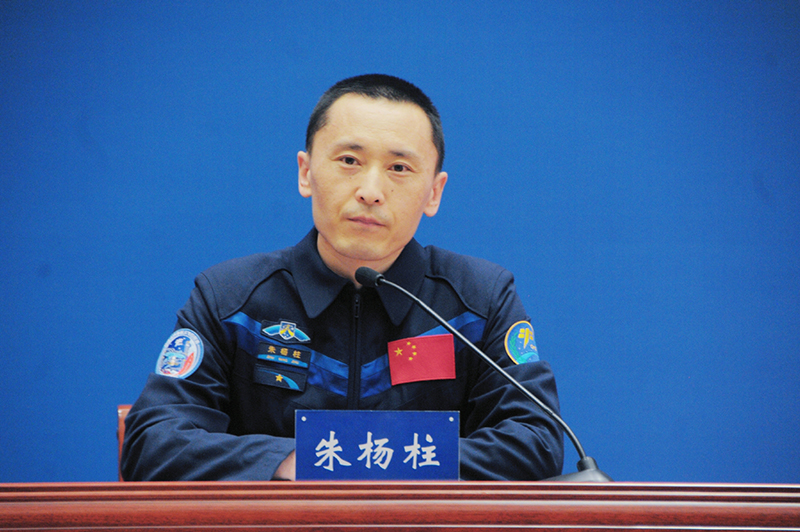
BEIJING, Jan. 20 -- The three taikonauts from China's Shenzhou-16 crewed mission made their first public appearance in Beijing on Friday, 80 days subsequent to their return from space.
The Shenzhou-16 spaceship was launched from the Jiuquan Satellite Launch Center on May 30, 2023, carrying three crew members: Jing Haipeng, Zhu Yangzhu, and Gui Haichao. They stayed in orbit for 154 days, during which they conducted one extravehicular activity and delivered the fourth live class from the Tiangong space station.
Wearing four badges of honor from his successful spaceflights on his chest, commander Jing said his crew, for the first time, comprised a diverse trio of taikonauts from different career backgrounds, including aircraft pilot, flight engineer, and payload specialist.
"Professional handles professional affairs," said the senior pilot, adding that the division of work was clear-cut, each one being charged with specific tasks.
The Shenzhou-16 mission marked Jing's fourth journey into space, making him the most experienced taikonaut.
Flight engineer Zhu was responsible for the maintenance and repair of the space station platform. He said the greatest challenge was to ensure "zero mistakes in daily operations" during the five-month mission.
"We successfully completed the mission and ensured the safe, stable, efficient, and long-term operation of the space station," Zhu told the media.
Payload specialist Gui was the first civilian taikonaut to fly in space. "Having the opportunity to participate in a multitude of cutting-edge research projects in space was an extraordinary experience, and I take great pride in it," Gui shared his feelings.
The spectacled university professor said he would incorporate the accomplishments attained throughout the space mission into his future scientific research endeavors, classroom instruction, and talent cultivation.
The three crew members were in good health. After the medical quarantine and recuperative care, they will undergo a health assessment before returning to normal training.


